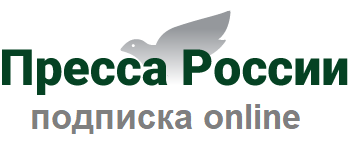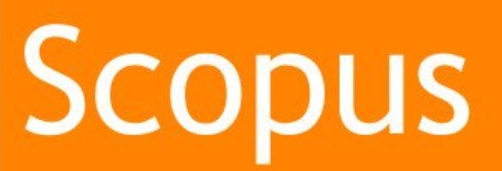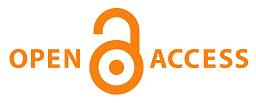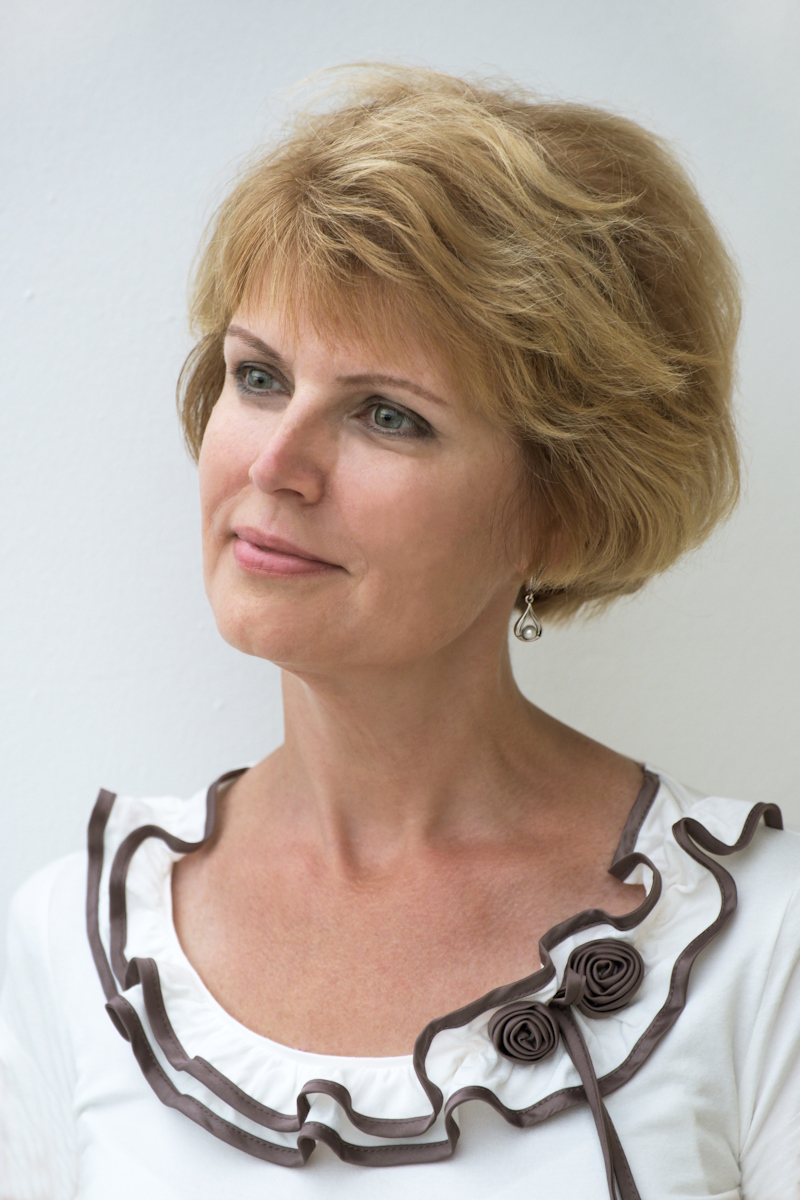Focus and scope
The purpose of the publication is to cover the content and search results of domestic and foreign scientists in the field of musical-pedagogical, psychological-musical and musical art history problems of general, additional and professional musical education.
Objectives:
- assistance to high quality of the professional musical-pedagogical and musical performing education in Russia which conforms to up-date international level of training of musicians and teachers;
- dissemination of information on the up-date scientific researches carried by the Russian and foreign scientists in the fields of musical science and art;
- updating of the content of the general, additional and professional musical education, including musical and pedagogical education, through introduction fundamental researches on actual music problems, musical and pedagogical problems in the training practices;
- development of personnel capacity of the Russian higher education institutions, to provide the opportunity to teachers in higher education to continue the professional education by studying the best domestic and foreign practices in area of musical science and education;
- creation of the wide field for professional communication of domestic and foreign musicians-teachers and also in artists and culture creators;
- promoting of the Russian experience in the fields of a research of musical-pedagogical and musical performing problems in order to draw attention of the international community of musicians-teachers, artists and culture creators to the Russian scientists achievements, to new musical and educational technologies in the general, additional and musical pedagogical education.
Plagiarism detection
Articles sent to the editorial office of the journal “Musical Art and Education” are being tested through the antiplagiarism system (Antiplagiat). In case numerous borrowings are discovered, the editors act in accordance with the rules of the International Committee on Publication Ethics (COPE) according to the following algorithm:
1) notification of the author of the presence of illegal borrowing;
2) receipt of confirmation of notification from the author *;
3) refusal to publish an article.
* In the absence of an author’s response within three months, the editors have the right to notify the management of the organization in which the author works.
Disclosure and conflict of interest
Unpublished materials disclosed in a submitted manuscript must not be used in a reviewer’s own research without the express written consent of the author. Privileged information or ideas obtained through peer review must be kept confidential and not used for personal advantage.
Reviewers should not consider manuscripts in which they have conflicts of interest.
Open access policy
The journal “Musical Art and Education” has agreed to the Budapest Open Access Initiative and therefore provides immediate open access to its content on the principle that making research freely available to the public supports a greater global exchange of knowledge.
Author fees
Publication in “Musical Art and Education” is a royalty-free publication.
The cost of editorial and publishing services for conducting prepress preparation of a publication (literary editing, proofreading, typesetting, checking translations of article metadata) is 10,000 rubles. Payment is made only after a positive review has been received and the editorial board of the journal has decided to publish the article in a particular issue.
Articles of invited scholars and graduate students are published for free. An annual subscription to the magazine is welcome.
The publication of the prepared article is free.
Publishing ethics
The section is based on materials from the Elsevier scientific publishing house, as well as materials from the International Committee on Publication Ethics (COPE).
- Introduction
1.1. The publication of materials in peer-reviewed journals is not only a simple way of scientific communication. It also makes a significant contribution to the development of the corresponding field of scientific knowledge. Thus, it is important to establish standards for the future ethical behavior of all parties involved in the act of publishing: the authors, the journal editorial board, the peer reviewers, the publisher of the journal and the scientific community for the journal “Musical Art and Education”.
1.2. The publisher not only maintains scientific communications and invests in this process, but is also responsible for ensuring that best practice is followed in its publications.
1.3. The publisher commits itself to the strictest supervision of scientific materials. The editorial ethics of the journal “Musical Art and Education” is based on the Code of Ethics for Scientific Publications developed by the Committee on the Ethics of Scientific Publications, as well as the experience of authoritative international journals and publishers.
- Duties of Editors
2.1. Publication Decision
The Chief Editor of the scientific journal “Musical Art and Education” is personally and independently responsible for deciding on publication. The reliability of the work under consideration and its scientific significance must always underlie the decision to publish. The editor may be guided by the policies of the Editorial Board of the journal “Musical Art and Education”, being limited by current legal requirements regarding defamation, copyright, legality and plagiarism.
The Chief Editor may consult with the members of the Editorial Board and the Reviewers or officials of the scientific community during the decision to publish.
2.2. Decency
The Chief Editor and members of the Editorial Board should evaluate the intellectual content of manuscripts regardless of race, gender, sexual orientation, religious beliefs, origin, citizenship or political preferences of the authors.
2.3. Confidentiality
The Chief Editor and members of the Editorial Board of the journal “Musical Art and Education” are obliged not to disclose information about the accepted manuscript to all persons, with the exception of Authors, Reviewers, possible Reviewers, other scientific consultants and the Publisher.
2.4. Disclosure Policy and Conflict of Interest
2.4.1. Unpublished materials disclosed in a submitted manuscript must not be used in a reviewer’s own research without the express written consent of the author. Privileged information or ideas obtained through peer review must be kept confidential and not used for personal advantage.
2.4.2. Members of the Editorial Board should recuse themselves (i.e. should ask a co-editor, assistant editor, or other members of the Editorial Board instead to review and consider) from reviewing manuscripts in which they have conflicts of interest due to competitive, collaborative, or other relationships or connections with any of the authors, companies, or (possibly) institutions connected to the papers.
2.5. Publication Supervision
Members of the Editorial Board presented with convincing evidence that the substance or conclusions of a published paper are erroneous, should notify the Publisher (and/or the relevant scientific society) to promote the prompt publication of a correction, retraction, expression of concern, or other note, as may be relevant.
2.6. Involvement and Cooperation in Investigations
The Chief Editor should take reasonably responsive measures when ethical complaints have been presented concerning a submitted manuscript or published paper, in conjunction with the publisher (or scientific society). Such measures will generally include contacting the author of the manuscript or paper and giving due consideration of the respective complaint or claims made, but may also include further communications to the relevant institutions and research centers.
The decision on the publication, the need to modify or reject thematically inappropriate or improperly executed materials is taken by the editorial board, consisting of the most competent specialists in the scientific community.
Submitted manuscripts are tested through the Antiplagiat system (Antiplagiat), thorough reviewing, editing and proof-reading in accordance with the requirements for the publication of scientific literature. The editors reserve the right to make reductions and editorial revisions, while respecting the principles of scientific ethics.
- Duties of Reviewers
3.1. Contribution to Editorial Decisions
Peer review assists the Chief Editor in making editorial decisions and through the editorial communications with the author may also assist the author in improving the paper. Peer review is an essential component of formal scientific communication, and is the basis of the scientific approach.
3.2. Promptness
Any selected Reviewer who feels unqualified to review the research reported in a manuscript or knows that its prompt review will be impossible should notify the Chief Editor of the journal “Musical Art and Education” and ask him to be excluded from the review process of the corresponding manuscript.
3.3. Confidentiality
Any manuscript received for review should be treated as a confidential document. It must not be shown to or discussed with others except as authorized by the Chief Editor.
3.4. Standard and Objectivity
Reviews should be conducted objectively. Personal criticism of the author is unacceptable. Reviewers should clearly and reasonably express their opinions.
3.5. Acknowledgment of Sources
Reviewers should identify significant published works that are relevant to the topic and not included in the bibliography of the manuscript. Any statement (observation, conclusion, or argument) published earlier in the manuscript must have an appropriate bibliographic reference. The reviewer should also draw the attention of the Editor to the discovery of significant similarities or coincidences between the manuscript in question and any other published work that is within the jurisdiction of the Reviewer.
3.6. Disclosure Policy and Conflict of Interest
3.6.1. Unpublished materials disclosed in a submitted manuscript must not be used in a reviewer’s own research without the express written consent of the author. Privileged information or ideas obtained through peer review must be kept confidential and not used for personal advantage
3.6.2. Reviewers should not consider manuscripts in which they have conflicts of interest due to competitive, collaborative, or other relationships or connections with any of the authors, companies, or institutions connected to the papers.
- Duties of Authors
4.1. Manuscript Requirements
4.1.1. Authors should ensure relevance, scientific novelty of materials submitted to the editorial office; provide reliable results of the work done as well as an objective discussion of the significance of the study.
The work should contain enough details and bibliographic references for possible reproduction. False or knowingly inaccurate statements are perceived as unethical behavior and unacceptable.
4.1.2. Reviews and scientific articles should also be accurate and objective, the point of view of the Editorial Board should be clearly indicated.
4.2. Data access and Retention
Authors may be requested raw data pertaining to the manuscript for review by the Editors. Authors should be prepared to provide open access to this kind of information (according to the ALPSP-STM Statement on Data and Databases), if feasible, and in any case be prepared to save this data for an adequate period of time after publication.
4.3. Originality and Plagiarism
4.3.1. Authors must make sure that a completely original work is presented. If the Authors have used the work and/or words of others, they must provide appropriate bibliographic references or excerpts, observing the accuracy of their design and correct citation.
4.3.2. Plagiarism can exist in many forms, from representing someone else’s work as copyright to copying or paraphrasing significant parts of someone else’s work (without attribution) and claiming their own rights to the results of another’s research. Plagiarism in all forms constitutes unethical acts and is unacceptable. Authors should be responsible for the originality of the study, avoiding plagiarism in all its forms (excessive citation, hidden citation, retelling, paraphrasing, etc.).
4.4. Multiple, Redundant or Concurrent Publication
4.4.1. The author must guarantee the exclusivity of the materials provided (the article cannot be previously published or proposed in another publication). Submitting the same manuscript as an original publication to more than one journal constitutes unethical publishing behavior and is unacceptable.
4.4.2. The author should not submit for consideration in another journal a previously published paper.
4.4.3. Publication of some kinds of articles in more than one journal is in sometimes ethical subject to certain conditions. Authors and Editors of interested journals must agree to a secondary publication, which necessarily presents the same data and interpretations as in the original published work. The bibliography of the primary work should be presented in the second publication.
4.5. Acknowledgment of Sources
The contribution of others must always be recognized. Authors should cite publications that are relevant to the presented paper. Information obtained privately, for example, during a conversation, correspondence or in a process of discussion with third parties, should not be used or presented without the clear written permission of the source. Information obtained from confidential sources, such as the evaluation of manuscripts or the provision of grants, should not be used without the express written permission of the Authors of work related to confidential sources.
4.6. Authorship of the Paper
4.6.1. Authorship should be limited to those who have made a significant contribution to the conception, design, execution, or interpretation of the reported study. All those who have made significant contributions should be listed as co-authors. Where there are others who have participated in certain substantive aspects of the research project, they should be acknowledged or listed as contributors.
4.6.2. The author should include in the list of Co-authors all persons who contributed to the conduct and presentation of the results of the study. The author should make sure that all participants who made a significant contribution to the study are represented as Co-authors and are not listed as Co-authors, those who did not participate in the study, that all Co-authors saw and approved the final version of the work and agreed to submit it for publication.
4.7. Disclosure and Conflict of Interest
4.7.1. All Authors are required to disclose in their manuscripts financial or other existing conflicts of interest that may be perceived as having an impact on the results or conclusions presented in the work; accurately indicate information on financial sources of support reflected in the research results.
4.8. Significant Errors in Publication
If the Author finds significant errors or inaccuracies in the publication, the Author must inform the Editor of the journal “Musical Art and Education” and interact with the Editor in order to remove the publication as soon as possible or correct errors. If the Editor or the Publisher received information from a third party that the publication contains significant errors, the Author is obliged to withdraw the work or correct the errors as soon as possible.
- Duties of the Publisher
5.1 The publisher must follow the principles and procedures that support the Editors, Reviewers and Authors of the journal “Musical Art and Education” in performing their ethical duties under these ethics guidelines. The publisher should ensure that the potential for advertising or reprint revenue has no impact or influence on editorial decisions.
5.2. The publisher should support the Editors of the journal “Musical Art and Education” in reviewing complaints about the ethical aspects of published materials and help interact with other journals and/or Publishers where this is useful to editors.
5.3. Publisher should develop codes of practice and inculcate industry standards for best practice on ethical matters, errors and retractions.
5.4. Publisher should provide specialised legal review and counsel if necessary.
Peer review policy
All scientific articles received by the editors of the journal “Musical Art and Education” undergo mandatory single-blind peer review (the manuscript authors do not know the reviewers and receive a letter with comments signed by the editor-in-chief).
Reviewing of articles is carried out by members of the editorial stuff and the editorial board, as well as invited reviewers – leading experts on the subject of peer-reviewed materials. The decision to choose a reviewer for the examination of the article is made by the editor-in-chief. The maximum review period, from the date of receipt to the decision, is 1 month, but at the request of the reviewer it can be extended.
1. Each article is sent to 2 reviewers.
2. All reviewers are recognized experts on the subject of peer-reviewed materials and have published over the past 3 years on the subject of a peer-reviewed article.
3. Each reviewer has the right to refuse to review if there is a clear conflict of interest that affects the perception and interpretation of manuscript materials. Based on the results of the manuscript review, the reviewer makes recommendations on the further fate of the article (each decision of the reviewer is justified):
- recommended for publication;
- the article is recommended to refine it taking into account comments without sending it for re-review;
- the article is recommended to refine it taking into account comments with sending for repeated review;
- the article is not recommended for publication.
4. The Editorial Board reserves the right to reduce and scientifically edit articles in agreement with the authors.
5. The decision to refuse to publish the manuscript is taken by the editorial board on the basis of reviews. An article not recommended for publication by the decision of the editorial board is not accepted for re-consideration. A refusal to publish is sent to the author by e-mail.
6. The article, revised or revised by the authors, is re-sent for review together with its original version as soon as possible. An article delayed for a period of more than three months or requiring re-processing shall be considered as newly received. Manuscripts rejected by peer review are not reviewed again.
7. In the event of the author’s refusal to modify the materials, they must notify the editors in writing or orally about their refusal to publish the article. If the authors do not return the revised version after three months from the date of sending the review, even if there is no information from the authors with a refusal to finalize the article, the editors remove it from the register. In such situations, the authors are sent a corresponding notice on the removal of the manuscript from registration due to the expiration of the time allotted for revision.
8. If the author and reviewer have unresolved contradictions regarding the manuscript, the editorial board has the right to send the manuscript for additional review. In conflict situations, the decision is made by the Chief Editor at a meeting of the editorial board. In case of disagreement with the opinion of the reviewer, the author of the article has the right to contact the editorial office with a reasoned request to send his manuscript for review to another reviewer with the relevant arguments in the appeal. In this case, the editorial staff sends the manuscript for re-review, or provides the author with a reasoned refusal.
9. After the editorial board of the journal has made a decision on the admission of the article to publication, the editors inform the author about this.
10. The Editorial Board also sends copies of reviews to the Ministry of Science and High Education of the Russian Federation upon a relevant request to the editorial office.
11. The presence of a positive review is not a sufficient basis for the publication of an article. The final decision on publication is made by the editorial board. In conflict situations, the decision is made by the Chief Editor.
12. The authors are not charged for reviewing articles.
13. Reviews are kept in the editorial office for 5 years.











